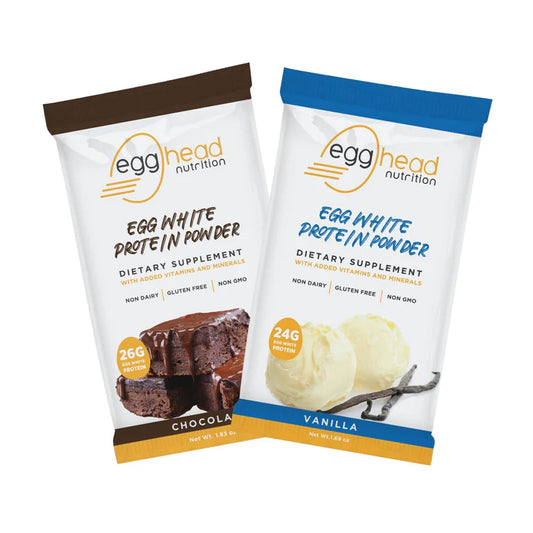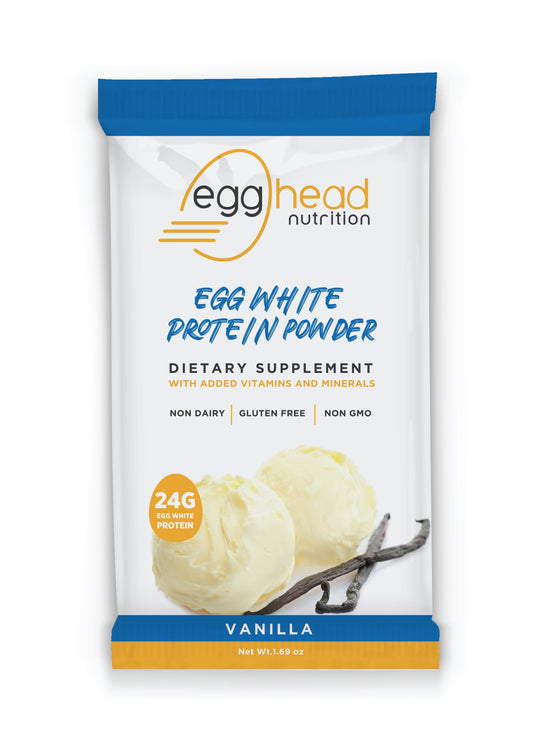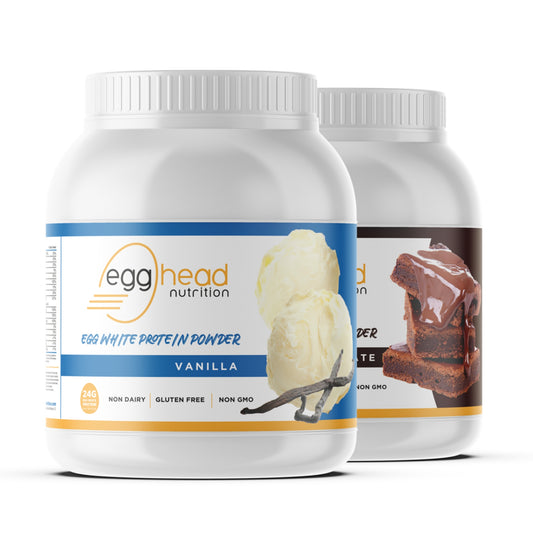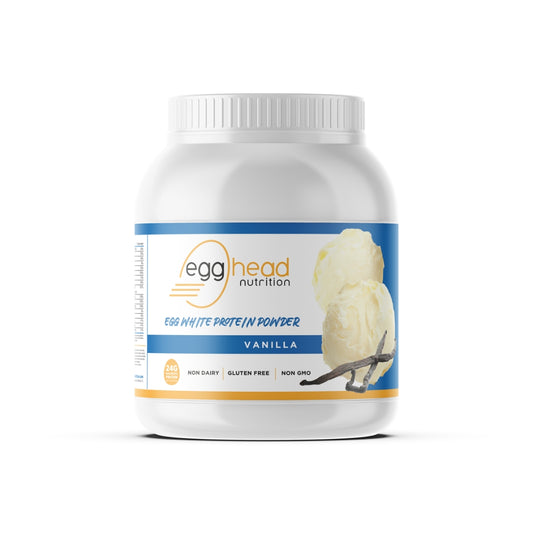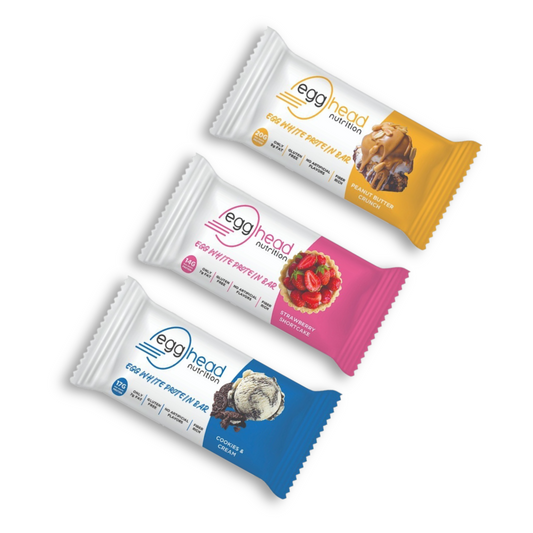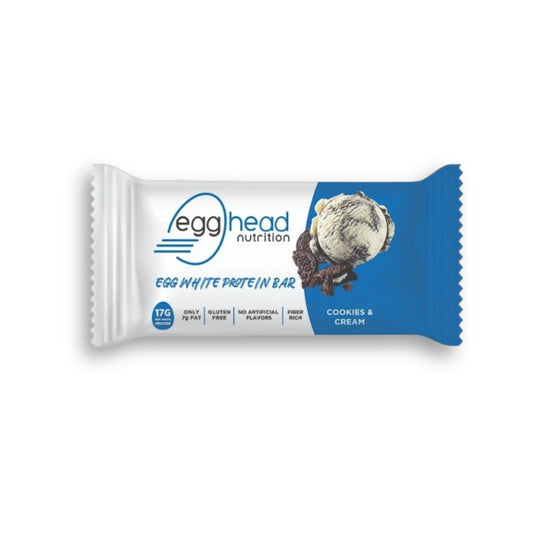Explore the best protein powder for weight gain guide, from selection to recipes, for optimal muscle growth and health.
Introduction: The Role of Protein Powder in Weight Gain
Protein powder has become a pivotal nutritional supplement for individuals looking to gain weight, particularly for those aiming to increase muscle mass. At its core, protein is essential for muscle repair and growth, making it a critical component in the diet of anyone looking to add pounds in a healthy and balanced manner.

For weight gain, protein powder serves not only as a convenient source of high-quality protein but also as a strategic tool to meet higher daily calorie and protein intake requirements efficiently.
In the journey of weight gain, consuming enough calories and protein through whole foods alone can be challenging, especially for those with high metabolic rates or those who struggle to eat large quantities of food. Herein lies the significance of protein powder - it provides a practical solution to supplement dietary intake without the bulk of whole foods.
Whether you're an athlete looking to bulk up, a fitness enthusiast aiming for muscle growth, or someone seeking to achieve a healthy weight, incorporating protein powder into your diet can be a game-changer.
Understanding Protein Powder: Types and How They Aid in Weight Gain
Protein powders come in various forms, each with unique characteristics suited to different dietary needs and goals. The most common types include:
- Whey Protein: Derived from milk, whey protein is fast-absorbing, making it ideal for post-workout recovery. It's rich in all the essential amino acids necessary for muscle growth.
- Casein Protein: Also sourced from milk, casein protein digests slowly, providing a steady release of amino acids over time, making it perfect for sustaining muscle protein synthesis, especially overnight.
- Soy Protein: A plant-based option that's a complete protein, containing all essential amino acids. It's a good alternative for those following a vegetarian or vegan diet.
- Pea Protein: Another plant-based option, pea protein is rich in branched-chain amino acids (BCAAs), particularly arginine, which is beneficial for muscle growth.
-
Rice Protein: While rice protein is plant-based and hypoallergenic, it's typically combined with other protein sources to ensure a complete amino acid profile.
Each type of protein powder aids in weight gain by providing the body with the necessary building blocks for muscle growth and repair. For those looking to gain weight, especially through muscle mass, the choice of protein powder can be aligned with their dietary preferences, digestion, and absorption characteristics, and timing around workouts for optimal results.
Incorporating protein powder into your diet can significantly enhance your ability to meet daily protein and calorie requirements. By understanding the different types of protein powders and how they support muscle synthesis and recovery, you can make an informed choice that aligns with your weight gain goals, dietary preferences, and lifestyle.
How to Select the Best Protein Powder for Weight Gain
Choosing the right protein powder to support your weight gain goals involves understanding your nutritional needs, dietary preferences, and fitness objectives. Here are key factors to consider to ensure you select the best protein powder for weight gain:
- Protein Type: Choose based on dietary needs—whey and egg white for quick absorption, casein for slow release, plant-based for vegans.
- Amino Acids: Ensure a complete profile, emphasizing BCAAs for muscle growth.
- Calories: Pick higher-calorie powders from quality sources for weight gain.
- Taste/Mixability: Favor good-tasting, easy-to-mix flavors for consistency.
- Nutrients: Look for added vitamins or muscle-support supplements.
- Brand/Quality: Select reputable brands with third-party testing.
Optimizing Your Diet: Incorporating Protein Powder for Effective Weight Gain
To effectively use protein powder for weight gain, it's essential to integrate it into a well-rounded diet. A key step in this process is determining your specific protein needs, for which a protein intake calculator can be incredibly useful.

These tools help you personalize your diet by estimating the optimal amount of protein required based on factors like your body weight, activity level, and weight gain goals. With this tailored approach, here are strategies for incorporating protein powder to maximize your weight gain efforts:
- Post-Workout: Drink a protein shake with carbs within 30 minutes after exercising.
- Meal Boost: Add to meals or snacks to increase protein and calorie intake.
- High-Calorie Shakes: Blend with nut butter, oats, and full-fat milk for calorie-rich shakes.
- Before Bed: Use slow-digesting protein to fuel muscle repair overnight.
Step-by-Step Guide: How to Use Protein Powder for Weight Gain
Incorporating protein powder into your routine for weight gain requires a strategic approach to ensure you're maximizing its benefits while complementing your overall diet and fitness goals. Here's a concise guide to help you navigate this process effectively:
- Determine Your Daily Protein Need: Calculate your daily protein requirement based on your weight, activity level, and weight gain goals. A general rule is 1.2 to 2.0 grams of protein per kilogram of body weight.
- Choose the Right Protein Powder: Select a protein powder that matches your dietary preferences, such as whey, casein, egg white, or a plant-based option, considering factors like digestion rate, amino acid profile, and calorie content.
- Timing is Key: Consume protein shakes at strategic times to enhance muscle growth and recovery—post-workout, between meals, or before bed.
- Mix with Nutritious Ingredients: Prepare shakes using milk or plant-based milk for extra calories and nutrients. Add fruits, nuts, or oats for additional fiber, vitamins, and healthy fats.
- Monitor Your Progress: Keep track of your weight, muscle mass, and overall health to adjust your protein intake and diet as needed.
Maximizing Results: Combining Exercise with Protein Powder for Weight Gain
To achieve optimal weight gain, especially in the form of lean muscle, combining your protein powder intake with a tailored exercise routine is crucial. Here's how to synchronize your workout and nutrition efforts for maximum impact:
- Strength Training: Focus on compound movements (like squats, deadlifts, and bench presses) to stimulate muscle growth. Aim for 3-5 sessions per week.
- Consistent Protein Intake: Ensure consistent protein consumption throughout the day to support muscle repair and growth, leveraging your protein powder around workouts and as needed to meet your daily goals.
- Recovery: Prioritize recovery by getting enough sleep, managing stress, and consuming protein post-exercise to kickstart muscle repair.
- Adjust as You Go: As you progress, continually reassess your dietary needs and workout intensity to align with your evolving weight gain and muscle-building goals.
- Stay Hydrated: Proper hydration supports metabolism and muscle recovery, so drink plenty of water throughout the day, especially around your workouts.
The Science Behind Protein Powder and Muscle Growth
The relationship between protein powder and muscle growth is rooted in the fundamental role of protein in muscle repair and synthesis. When you engage in strength training or any form of exercise that stresses the muscles, tiny tears occur in the muscle fibers.
Protein plays a critical role in repairing these tears, which, over time, leads to an increase in muscle size and strength. Here's a closer look at the science:
- Amino Acids: Protein powders provide a concentrated source of amino acids, the building blocks of protein. Essential amino acids, particularly leucine, play a pivotal role in initiating muscle protein synthesis.
- Muscle Protein Synthesis (MPS): MPS is the process through which the body repairs and rebuilds muscle fibers. Consuming protein powder, especially after workouts, increases the availability of amino acids, thereby enhancing MPS.
- Optimal Protein Intake: Studies suggest that for muscle growth, individuals should consume approximately 1.2 to 2.0 grams of protein per kilogram of body weight daily. Protein powders make meeting this requirement more achievable, especially for those with high protein needs.
Our Protein Powder for Weight Gain
At Egghead Nutrition, we're proud to offer a specialized solution for those on a journey towards healthy weight gain through muscle building and recovery. Understanding the importance of dietary protein in achieving these goals, we've developed an egg white protein powder that stands out in both quality and versatility.
Specifically designed to cater to the needs of individuals looking to increase their muscle mass or achieve a healthier weight, our protein powder is an essential tool in your nutritional arsenal.
High-Quality Egg White Protein
Our protein powder is crafted from the purest form of egg white protein, renowned for its excellent amino acid profile and high digestibility. This ensures that your body receives the essential nutrients it needs for muscle repair and growth without the added fats and carbohydrates that often come with other protein sources.
Egg white protein is also a fantastic option for those with dietary restrictions, such as lactose intolerance, providing a wholesome, animal-based protein alternative.
Delicious Flavors to Enjoy
We understand that incorporating protein powder into your daily diet is not just about the nutritional benefits; it's also about enjoying what you consume. That's why we offer our egg white protein powder in two delectable flavors: Vanilla and Chocolate.

Our Vanilla Protein Powder is smooth and versatile, perfect for blending into shakes, baking, or even mixing with your morning oatmeal for a protein-packed breakfast.
The Chocolate Protein Powder is rich and indulgent, ideal for satisfying your sweet tooth while still aligning with your health and fitness goals. These flavors not only make your protein intake more enjoyable but also ensure that you look forward to your protein-packed meals and snacks every day.
Top Protein Powder Recipes for Weight Gain
Incorporating Egghead Nutrition's protein powders into your diet can be both delicious and effective for weight gain. Here are top recipes that use our Vanilla and Chocolate Protein Powders, designed to help you pack on the pounds in a tasty way:

1. Vanilla Protein Pancakes
- 1 scoop Egghead Nutrition Vanilla Protein Powder
- ½ cup oat flour
- 1 banana, mashed
- 1 egg
- ¼ cup milk or almond milk
- 1 tsp baking powder
- Mix ingredients and cook on a preheated skillet. Serve with your favorite toppings.
2. Chocolate Peanut Butter Protein Shake
- 1 scoop Egghead Nutrition Chocolate Protein Powder
- 1 banana
- 2 tbsp peanut butter
- 1 cup milk or almond milk
- Ice cubes
- Blend all ingredients until smooth for a rich, indulgent shake.
3. Vanilla Berry Smoothie Bowl
- 1 scoop Egghead Nutrition Vanilla Protein Powder
- ½ cup mixed berries (fresh or frozen)
- ½ banana
- ½ cup Greek yogurt
- A splash of milk or almond milk, as needed
- Blend until smooth, then pour into a bowl and top with granola, seeds, and additional berries.
4. Chocolate Protein Oatmeal
- 1 scoop Egghead Nutrition Chocolate Protein Powder
- ½ cup rolled oats
- 1 cup milk or water
- 1 tbsp cocoa powder (optional for extra chocolate flavor)
- Cook oats as usual, stir in protein powder and cocoa powder at the end. Top with banana slices or nuts.
5. Vanilla Almond Protein Bars
- 1 cup oat flour
- 2 scoops Egghead Nutrition Vanilla Protein Powder
- ½ cup almond butter
- ¼ cup honey or maple syrup
- 2-4 tbsp milk or almond milk (as needed for consistency)
- Mix ingredients, press into a lined baking dish, refrigerate until set, then cut into bars.
Safety and Side Effects: What You Need to Know About Protein Powder for Weight Gain
Using protein powder as a supplement for weight gain is a common practice among athletes, bodybuilders, and individuals looking to increase their muscle mass. While protein powders are generally considered safe for most people, it's important to be aware of potential safety considerations and side effects to ensure a healthy and effective approach to weight gain.
Protein powders, derived from various sources like whey, casein, soy, pea, or egg, provide a concentrated source of protein that can help meet the increased protein requirements associated with muscle growth and repair. However, as with any supplement, there are several factors to consider regarding safety and potential side effects.
Safety Considerations
- Kidney Function: High protein intakes over a long period can strain the kidneys, particularly in individuals with pre-existing kidney conditions.
- Liver Function: Excessive protein consumption can also impact liver function, though this is less common and typically associated with underlying liver disease.
- Nutritional Balance: Relying too heavily on protein supplements can lead to nutritional imbalances, missing out on other essential nutrients provided by whole foods.
- Allergies and Sensitivities: Some individuals may experience allergic reactions or sensitivities to specific ingredients in protein powders, such as dairy, soy, or gluten.
Potential Side Effects
- Digestive Issues: Overconsumption of protein powders can lead to bloating, gas, and diarrhea, especially in those with sensitive digestive systems or intolerances to certain protein sources.
- Dehydration: Increased protein intake requires more water to metabolize, so inadequate hydration can lead to dehydration.
- Caloric Excess: Protein powders are calorie-dense, and excessive use without adequate exercise can lead to unwanted weight gain in the form of fat.
|
Consideration/Effect |
Description |
|
Kidney Function |
High protein can strain kidneys, especially with existing conditions. |
|
Liver Function |
Excessive consumption may affect the liver, linked with liver disease. |
|
Nutritional Balance |
Supplements can lead to missing essential nutrients from whole foods. |
|
Allergies/Sensitivities |
Possible reactions to ingredients like dairy, soy, or gluten. |
|
Digestive Issues |
May cause bloating, gas, and diarrhea in sensitive individuals. |
|
Dehydration |
Protein metabolism requires more water, risking dehydration. |
|
Caloric Excess |
Excessive intake without exercise can result in fat gain. |
Frequently Asked Questions About Using Protein Powder for Weight Gain
Q1: How much protein powder should I take daily for weight gain?
A: Aim for 1.2 to 2.0 grams of protein per kilogram of your body weight daily, inclusive of all sources. Adjust your protein powder intake based on your overall diet and protein needs.
Q2: Can protein powder replace meals?
A: While protein shakes can supplement a meal or serve as a snack, they shouldn't replace whole meals regularly. Whole foods provide essential nutrients and dietary fiber that protein powders cannot fully replicate.
Q3: When is the best time to take protein powder for optimal weight gain?
A: For muscle recovery and growth, consume a protein shake within 30 minutes post-exercise. Additionally, using protein powder as a snack between meals can help increase overall protein and calorie intake.
Q4: Will protein powder cause weight gain if I'm not exercising?
A: Protein powder contributes to increased calorie intake, which can lead to weight gain. However, without exercise, especially resistance training, this weight may not be in the form of desired muscle mass.
Q5: Can I use protein powder if I'm lactose intolerant or have dietary restrictions?
A: Yes, there are various protein powders suitable for those with dietary restrictions, including lactose-free (e.g., whey isolate, egg white protein) and plant-based options (e.g., pea, rice, soy protein).
Q6: Are there any side effects to using protein powder for weight gain?
A: Consuming too much protein powder can lead to digestive issues, dehydration, and in rare cases, kidney strain in individuals with pre-existing conditions. It's essential to consume protein in moderation and stay hydrated.
Conclusion: Your Path Forward with Protein Powder for Weight Gain
Embracing protein powder as a part of your weight gain journey offers a supportive boost towards reaching your muscle growth and fitness goals. The effectiveness of protein powder lies in choosing the right product, combining it with a balanced diet, and maintaining a consistent exercise routine.
Remember, success requires more than just supplementation; it demands attention to overall nutrition and health.


